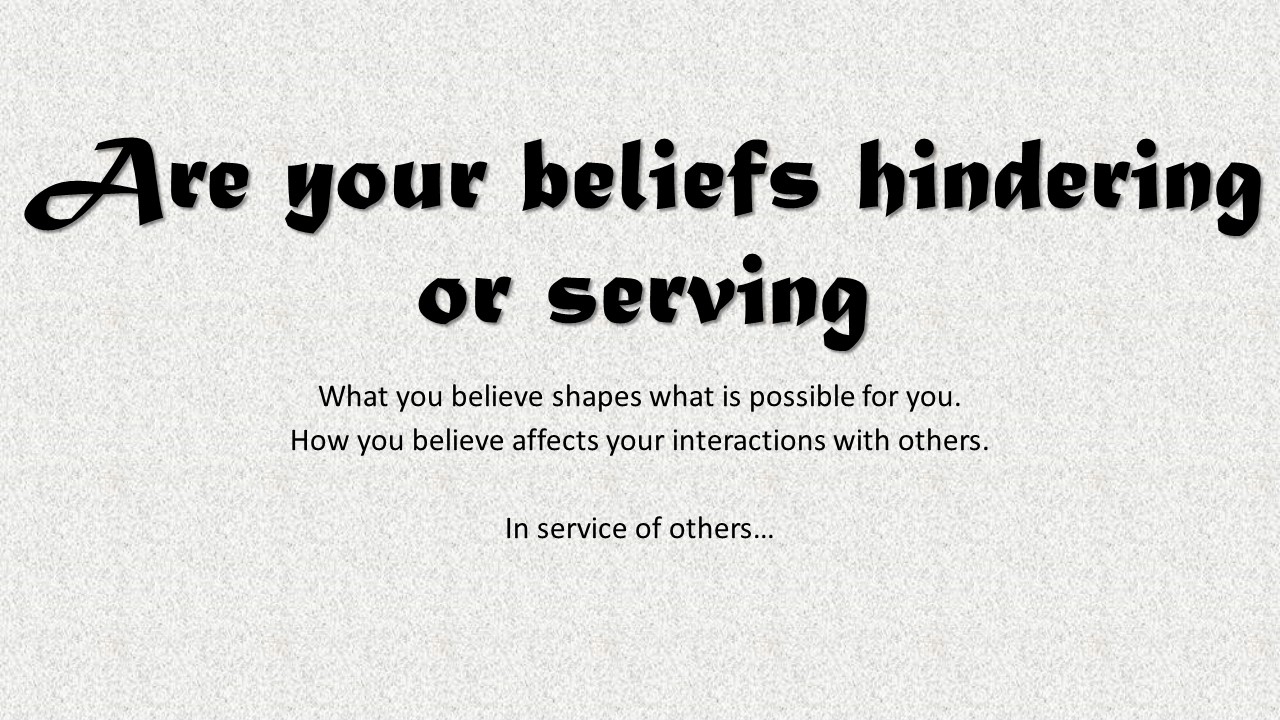
Hindering or Serving: How Do I know which beliefs I hold?
This begs the question, how do you ensure your beliefs aren’t hindering, but instead are serving? To answer this, introspection is key. What are your beliefs anyway? How to you access them? Many folks are easily blind to their own flaws. It is not comfortable to see yourself for who you are. Others, however, do not have the same filters we use on ourselves and often deal with us as we are.
Ask somebody… be ready to be told though
Asking feedback from people is a sure way to get insight about your views. No, don’t go asking the first handful of people you know ”hey… can you tell me what my views are?”. Many will find that awkward.
However, if you prep them, let them know that you’re doing some examining of your habits and want to improve, if they wanted to share two things that they like about you and one that they feel either can improve or is not very helpful, then, you can get some good feedback. You’ll be amazed at what you can learn when someone you trust, who cares about you, and is willing to share, opens up to you.
Reflective writing… aka journaling
Journaling is another great way to get insight into what you’re thinking. Not just writing critically, but free writing about your day, your thoughts, your preferences, your aches, etc. Then, after some distance of time, review your writings. That reflection will amaze you in the wealth of information you get. In real time, it’s hard to assess fairly what you’re thinking, but a few months after the fact, seeing your thoughts can be eye opening.
While on the topic of journaling, it’s also a good idea to note what others say to you in response to interacting with you. There is a reason why certain key phrases come your way often.
Example, after business meetings, if people compliment your inputs on a regular basis, it’s fair to take it to mean that you’re contributing something worthy of their mention. However, if people are quick to leave you and don’t want to continue chatting about your points and rather talk to others about their points, that is sign that something about your engagement needs work.
Cautionary Caveats
This is where it must be emphasized, the process of looking at how you function is not an easy road. There are discoveries that can hurt. There are others that may be too challenging to handle alone. Help in processing is important if the revelations are too much. There is nothing wrong in speaking with a counselor, a trusted friend, a trusted prayer warrior, or therapist. The revelations can be a great opportunity to make a pivot in your life to improve yourself so that you’re helping yourself and others.
A word on meditation
The area of meditation is one that is too broad and deep for this post. Yet, it needs to be mentioned here nevertheless. Through meditation, great insights can be found about yourself and how your beliefs shape what you do as well as the impact you have on others.
Prayerful meditation is a very powerful tool to tap into wisdom and understanding that is out of your reach otherwise. The learnings will come at a pace you may not necessarily control, but it will come and move you if you’re willing to be moved. God will speak to you in a manner of His choice if your heart is open to hearing His voice.
There are many other forms of meditation that also help you find insight into your thinking. Some will help you accept your thoughts. Others may help you quiet your thoughts until a more fitting time arises to think on them. Others still direct your thinking into a focused point. Bottom line, if there is a form of meditation that can be of use to you, search for it and find it.
There are more ways to uncover your beliefs. Having a coach, having a mentor, asking the right questions, and even seeing a therapist. Life also gives you clues along the way. In the future, more ways of uncovering your beliefs systems will get discussed.
